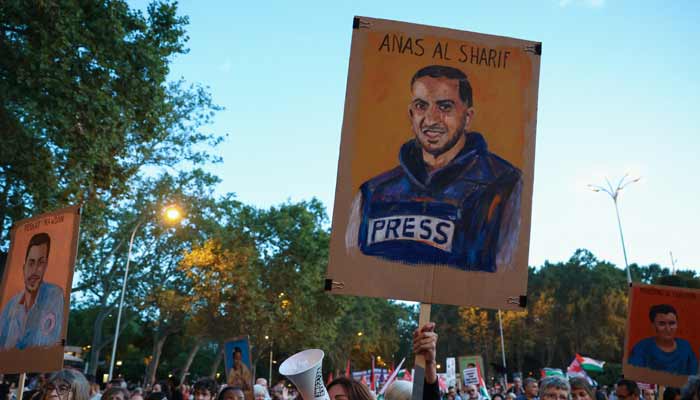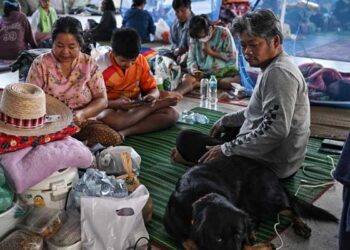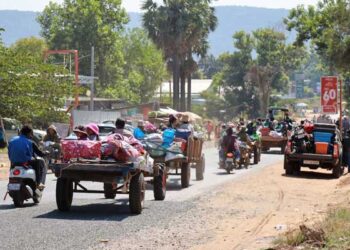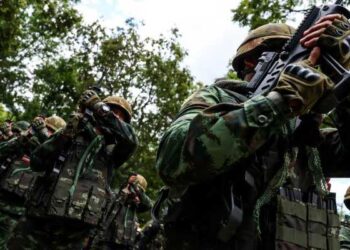Select Language:
Protesters displayed a memorial sign honoring slain Palestinian Al Jazeera journalist Anas al-Sharif during a demonstration organized by Spanish unions in Madrid, Spain, on October 15, 2025. — Reuters
Journalists covering the Gaza conflict recounted harrowing tales of loss and survival, expressing deep frustration over the international community’s muted response to the targeting and killing of media personnel by Israeli forces.
At the 2025 International Press Institute (IPI) World Congress and Media Innovation Festival, a panel of journalists shared the emotional and traumatic moments they endured amid the Gaza war, lamenting a pervasive sense of abandonment as they witnessed violence against the press.
Wael Al-Dahdouh, an Al Jazeera reporter who lost five family members—including his wife—in Israeli strikes, and who found his daughter alive under rubble, questioned: “What did my family do?”
He described reporting in such conditions as a “unique and agonizing reality,” where journalists face the heartbreaking choice between fulfilling their duties or protecting their humanity. Al-Dahdouh criticized the international media’s inadequate response to the violence, stating, “We were left alone,” and emphasized the need for greater action.
Data from the Committee to Protect Journalists (CPJ) indicated that at least 238 journalists and media workers had been killed by Israel since October 7, 2023.
Senior journalist Rawan Damen from Al Araby TV commended Al-Dahdouh’s balanced coverage, contrasting his approach with mainstream international outlets, which largely failed to address what she called “genocide,” leaving the spotlight to independent organizations and some brave broadcasters.
French journalist Laurent Richard warned about the dangerous consequences of inaction, pointing out the normalization of journalist murders and widespread impunity.
Basel Khalaf, also a journalist covering Gaza, described the territory as having shifted from “a large prison” before the conflict to “a large cemetery” today. He called on the global media to go beyond mere statistics and humanize the stories of Gazan reporters, highlighting the urgent needs of his colleagues—including essential equipment, medical aid for the injured, and the release of detainees held by Israel—urging international press to keep the narrative alive.







